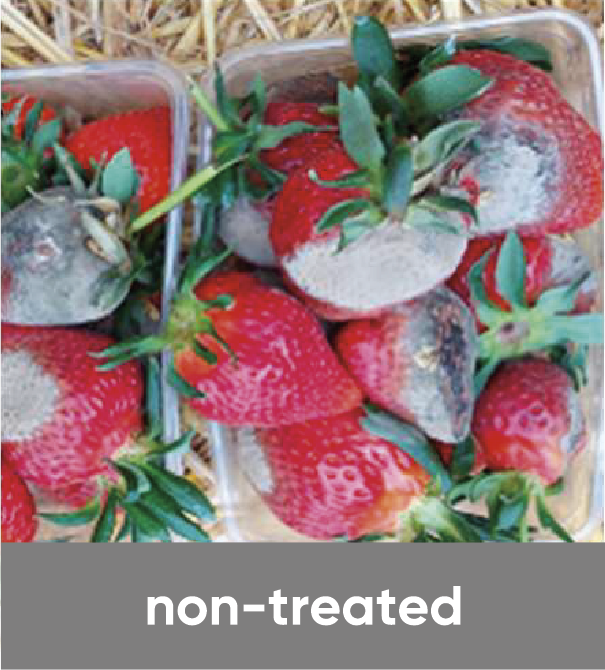Better Produce, Less Food Waste With Fungicides' Help

If you’ve ever felt a pang of guilt over having to toss out a carton of berries you let go bad, you understand the importance of carefully managing food waste. While many of us are starting to pay more attention to reducing our personal food waste, farmers, scientists and people across the food system are also working on large-scale solutions.
The largest absolute loss of potential food in the world’s food system happens before harvest, due to weeds, pests and diseases. When it comes to crop diseases, fungal pathogens have the greatest impact, accounting for about 12 percent of total crop losses.1
Fungal diseases can impact both crop quantity (yield) and quality, both of which have important consequences for food loss. Quantitative damage means fewer tons of food harvested, but also a loss of income for the grower. Qualitative damage of crops can make them unmarketable or inedible, because of a lower amount of an ingredient in a crop (such as less sugar in a fruit), poor physical appearance (like blemishes), reduced storage durability or contamination with mycotoxins, which can be hazardous to human and animal health.1
In a world where food insecurity is a very real concern for many, and access to affordable, high-quality produce is valued by everyone, fungicides play a vital role in reducing food loss and feeding more people sustainably. In one study of a fungal pathogen in wheat, researchers found that use of a fungicide reduced losses by as much as 75 percent.2 Innovative fungicides, like Adavelt™ active, will give farmers a new option against fungal diseases that reduces risks of resistance and has a smaller environmental footprint than other fungicides.
Food loss is a complex issue, and it will take many factors working together to help solve it. For farmers, fungicides are a critical tool in this fight, and the more innovative options they have available, the more they can reduce damage from fungal diseases and maximize the amount of food that makes it from their fields to our kitchens.


Fungal diseases are the most common type of plant pathogen and account for about 12 percent of global crop losses. Fungicides greatly reduce damage from fungal diseases to help reduce food loss.
Learn more about Adavelt active
*Measured in terms of dry biomass production.
1 Moore, David, G. D. Robson, and Trinci A P J. “14.1 Fungal Diseases and Loss of World Agricultural Production .” In 21st Century Guidebook to Fungi. Cambridge, United Kingdom: Cambridge University Press, 2020.
2 Steinberg, Gero, and Sarah J. Gurr. “Fungi, Fungicide Discovery and Global Food Security.” Fungal Genetics and Biology 144 (June 8, 2020): 103476. https://doi.org/10.1016/j.fgb.2020.103476.
Registrations for products containing Adavelt have not yet received regulatory approvals; approvals are pending. The information presented here is not an offer for sale.